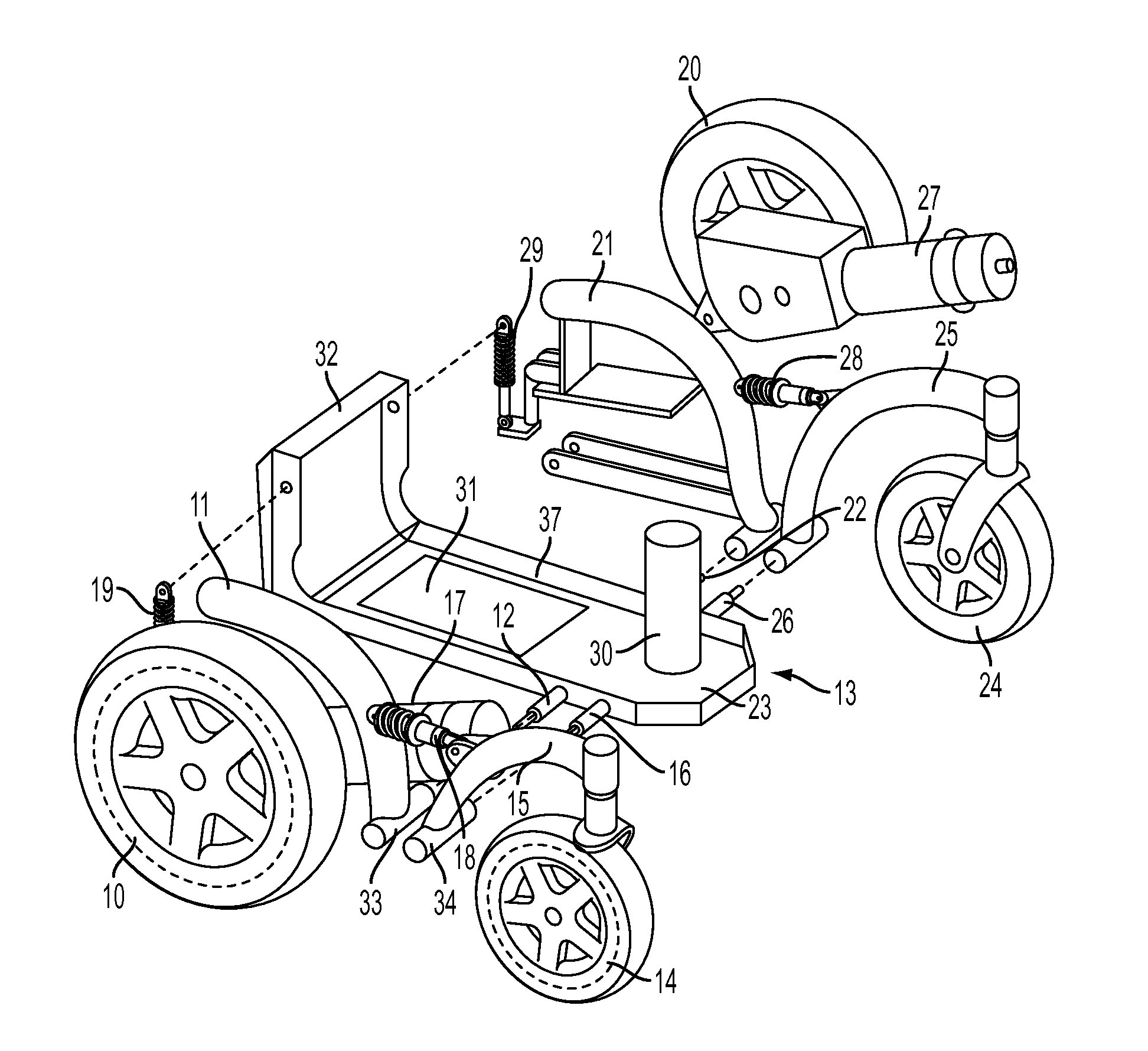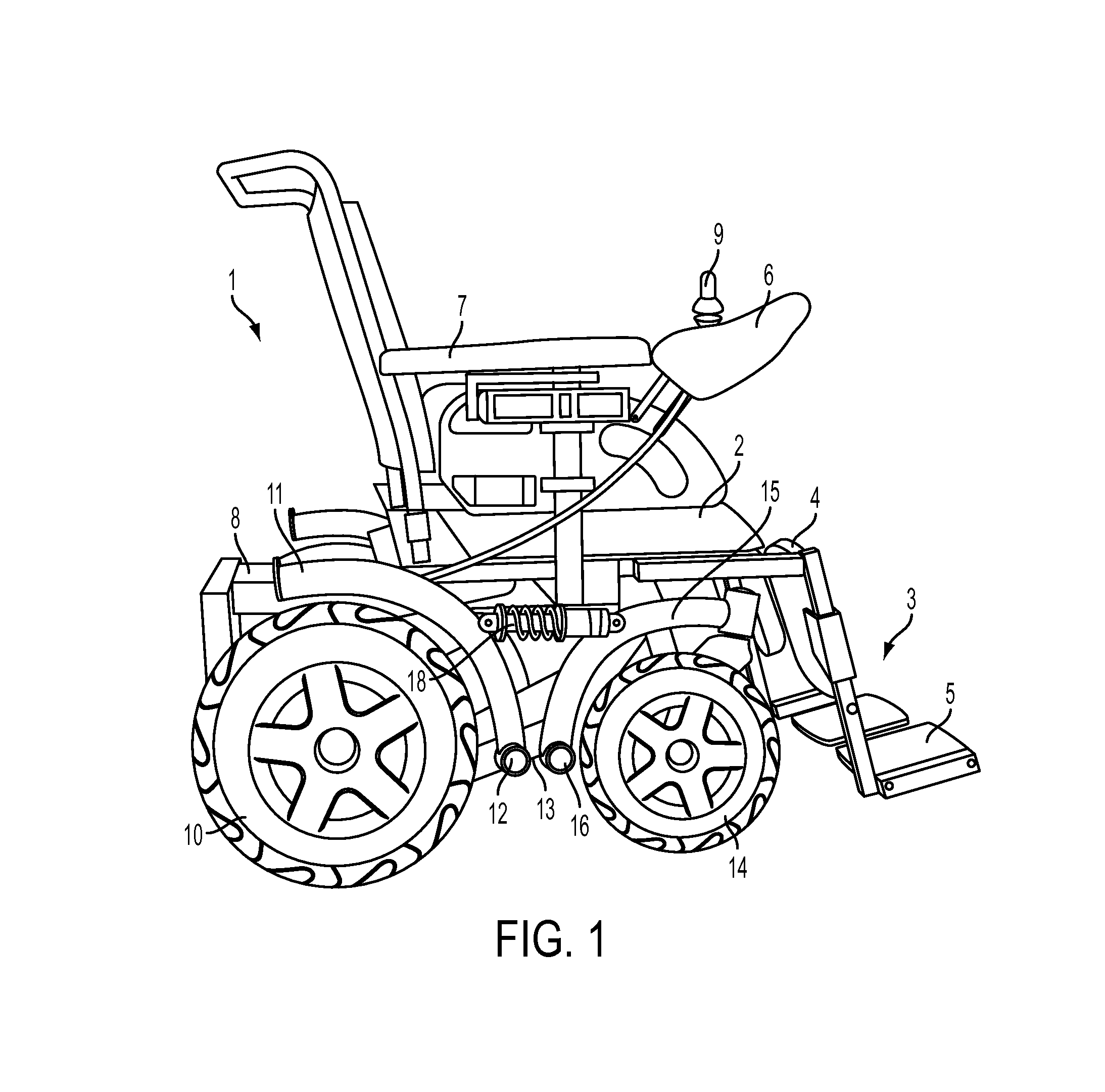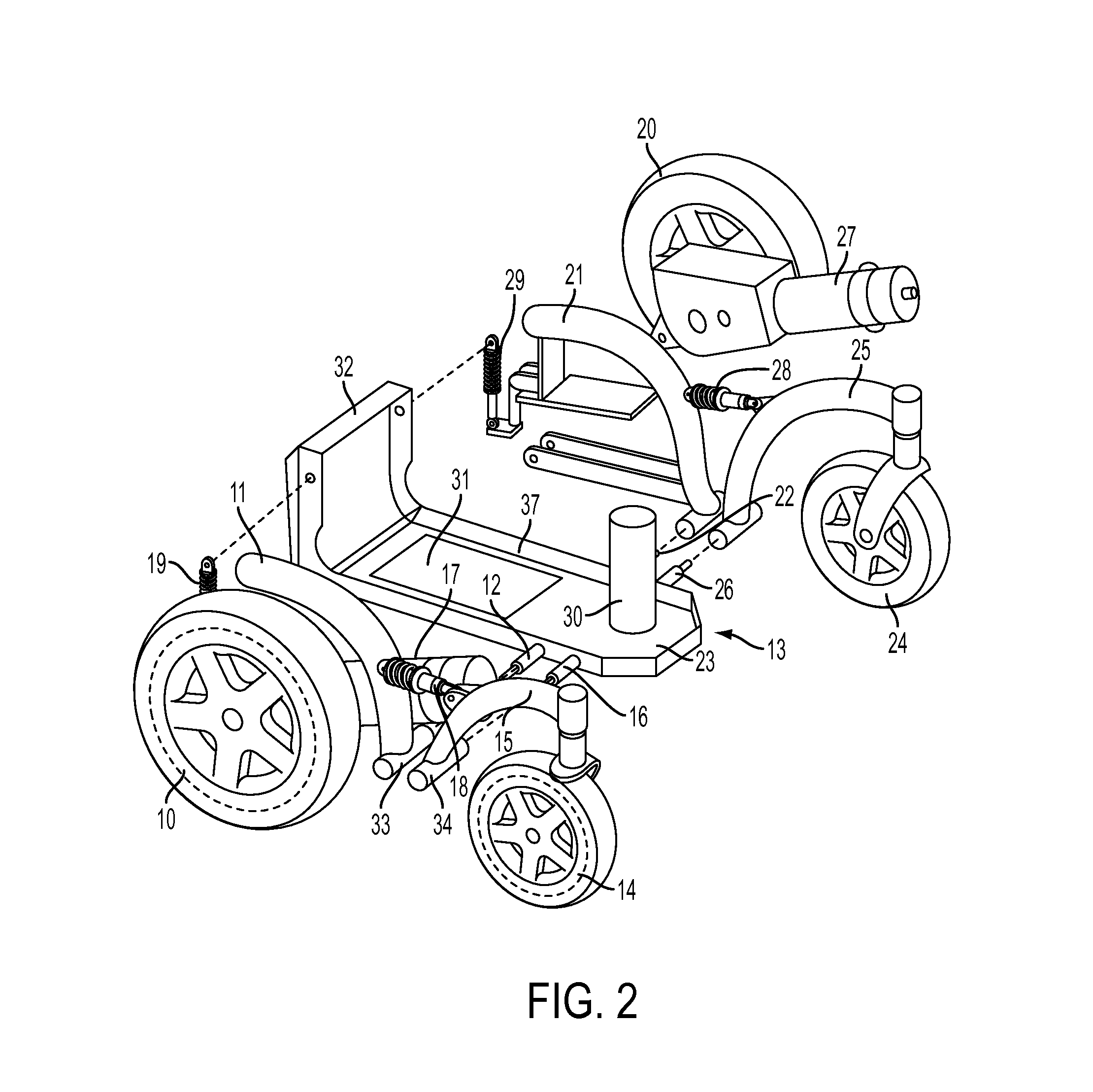Wheelchair with suspension arms
a technology of suspension arms and wheels, which is applied in the direction of resilient suspensions, interconnection systems, medical transportation, etc., can solve the problems of severe conditions, unsatisfactory key characteristics of contemporary wheelchairs, and the respect of self-propelled wheels in the form of motorized wheelchairs, so as to improve driving comfort
- Summary
- Abstract
- Description
- Claims
- Application Information
AI Technical Summary
Benefits of technology
Problems solved by technology
Method used
Image
Examples
Embodiment Construction
[0032]In FIG. 1, the right-side profile of a complete motorised wheelchair 1 having a pair of left and right motorised rear wheels and a pair of left and right front castor wheels is shown. A seat 2 with a backrest, a right leg-rest 3, and a right castor wheel 14 and a motorised wheel 10, respectively, can be seen. The leg-rest 3 comprises a foot-rest 5 and a calf-rest 4, as usual with wheelchairs. In the wheelchair shown, the leg-rest 3 is mounted to the seat 2. A right armrest 7, also part of the seat 2, is also visible, in front of which a steering and motion control unit 6 comprising a joystick 9 is arranged.
[0033]The right suspension arm 15 of the castor wheel 14 is pivotally mounted to the base 13 of the wheelchair at a pivot axis 16, and the right suspension arm 11 of the motorised wheel 10 at a pivot axis 12. The pivot axis 12 and 16 are situated next to each other, horizontally offset. A small portion of the base 13, to which the suspension arms are pivotally fixed at the p...
PUM
 Login to View More
Login to View More Abstract
Description
Claims
Application Information
 Login to View More
Login to View More - R&D
- Intellectual Property
- Life Sciences
- Materials
- Tech Scout
- Unparalleled Data Quality
- Higher Quality Content
- 60% Fewer Hallucinations
Browse by: Latest US Patents, China's latest patents, Technical Efficacy Thesaurus, Application Domain, Technology Topic, Popular Technical Reports.
© 2025 PatSnap. All rights reserved.Legal|Privacy policy|Modern Slavery Act Transparency Statement|Sitemap|About US| Contact US: help@patsnap.com



